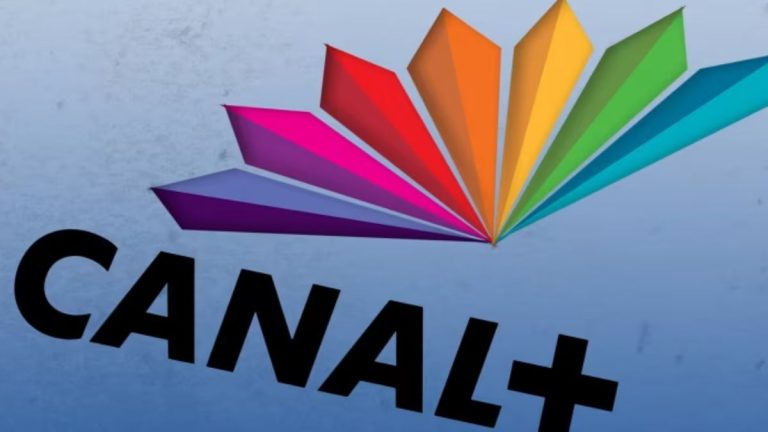MultiChoice restructures DStv in one of the most significant shifts in South Africa’s media landscape. The move clears the path for the Multichoice Canal+ deal, a transaction that could reshape broadcasting and streaming in Africa.
Thank you for reading this post, don't forget to subscribe!This reorganisation comes after French media giant Canal+ triggered a mandatory takeover offer, valuing MultiChoice at around R55 billion. The decision was not only strategic but also necessary to comply with South African legislation.
Why MultiChoice Restructures DStv
The restructuring ensures that MultiChoice meets the requirements of the Electronic Communications Act (ECA). This law limits foreign entities to a maximum of 20% voting rights in broadcasting licence holders.
Additionally, the Act requires at least 30% ownership by Historically Disadvantaged Persons (HDPs). Without these changes, the Multichoice Canal+ deal would not have received regulatory approval.
Don’t miss our coverage on the latest additions — Exclusive! Three New Channels Added to DStv’s R300 Package.
What Triggered the Canal+ Takeover
Canal+ already owned more than 45% of MultiChoice before the deal. When it exceeded the 35% threshold under the South African Companies Act, it was compelled to make a full takeover offer.
After months of negotiations with the MultiChoice board, Canal+ made an offer of R125 per share for the remaining stock. This valued the group at R55 billion.
Reuters confirmed that the Competition Tribunal granted conditional approval in July 2025.
Creation of LicenceCo: The Core of the Reorganisation
At the heart of the restructuring is a new company called LicenceCo. This entity will house MultiChoice’s South African broadcasting licences and local subscriber contracts.
The ownership structure was designed to limit Canal+ control while increasing local ownership:
| Shareholder | Economic Interest | Voting Rights |
|---|---|---|
| MultiChoice Group | 49% | 20% |
| Phuthuma Nathi | 27% | 39% |
| 13th Avenue Investments | 9.5% | 16.23% |
| Identity Partners Itai Consortium (IPIC) | 9.5% | 16.23% |
| MultiChoice Workers Trust | 5% | 8.54% |
Who Are the Key Local Shareholders?
- Phuthuma Nathi: MultiChoice’s broad-based black economic empowerment vehicle. It acquired shares via a R3.77 billion loan claim.
- 13th Avenue Investments: Linked to business leaders such as Sipho Maseko, former CEO of Telkom.
- IPIC: Includes respected South African investors like Sonja de Bruyn and Ernest Kwinda.
- Workers Trust: Beneficiaries are MultiChoice employees and key suppliers.
Learn more about MultiChoice’s digital strategy in Big Plans for DStv: MultiChoice Embraces Streaming with Showmax and DStv Stream.
This diversified ownership structure ensures that LicenceCo remains majority South African-owned.
Financial Impact of the Reorganisation
The restructuring comes with major financial implications:
- An extraordinary dividend of R1.375 billion will be paid, of which R343.75 million goes to Phuthuma Nathi.
- Phuthuma Nathi also increased its stake in signal distributor Orbicom from 25% to 40%.
- 13th Avenue and IPIC paid R287 million combined for their equity.
BusinessTech reported that MultiChoice disposed of 26% of its economic interest in LicenceCo and 15% in Orbicom as part of this restructuring.
Regulatory Conditions for the Canal+ Deal
The Competition Tribunal imposed strict public interest conditions on the Canal+ takeover. These include:
- Maintaining jobs in South Africa.
- Ensuring local content production remains a priority.
- Protecting the plurality of media voices.
- Continued compliance with BBBEE requirements.
These conditions aim to safeguard South Africa’s cultural and economic interests while enabling the global merger.
The Broader Market Context: Why Now?
The restructuring takes place against a backdrop of subscriber losses and industry disruption.
According to MultiChoice’s 2025 financials:
- The group lost 2.8 million active linear subscribers over two years.
- It absorbed a R10.2 billion hit from currency depreciation.
- Piracy, global streaming services, and social media eroded its market position.
The deal with Canal+ is therefore not just regulatory compliance but also a strategic survival move.
Expert Opinions on the Multichoice Canal+ Deal
- Maxime Saada (CEO, Canal+): “This transaction is an opportunity to create a unique global media company with a strong presence across Africa. It will have the scale, expertise and creativity to compete and partner with the largest players within the media sector and beyond.”
- Calvo Mawela (CEO, MultiChoice): “The opportunity to combine our efforts to increase scale and bring our subscribers an even better offering is something that continues to excite us.”
Both leaders highlighted scale and competitiveness as the driving forces behind the deal.
Implications for Viewers
MultiChoice reassured subscribers that there will be no disruption to services. Canal+ has committed to:
- Investing in new content.
- Expanding technology infrastructure.
- Supporting Showmax and streaming growth.
For DStv users, the short-term impact may be minimal, but over time viewers could benefit from expanded content libraries and stronger digital platforms.
Risks and Challenges Ahead
Despite the restructuring, challenges remain:
- Managing the complex governance structure of LicenceCo.
- Balancing economic vs voting rights among shareholders.
- Sustaining profitability in a competitive streaming market.
- Addressing continued currency volatility and consumer affordability issues.
Industry analysts caution that restructuring alone does not solve long-term sustainability challenges.
ind out the reasons behind the delays in DStv Restructuring: Why DStv’s Package Overhaul Took So Long.
A Defining Moment in African Broadcasting
The fact that MultiChoice restructures DStv shows the seriousness of the Multichoice Canal+ deal. By creating LicenceCo and bringing in local empowerment shareholders, MultiChoice has cleared the path for Canal+ while meeting South Africa’s legislative demands.
For South Africa, this is more than a corporate transaction. It is a balancing act between global capital and local empowerment, between market survival and cultural preservation.
As the updated timetable for the mandatory offer is released, viewers, employees, and regulators alike will be watching closely. The outcome could define the next chapter of African broadcasting.




